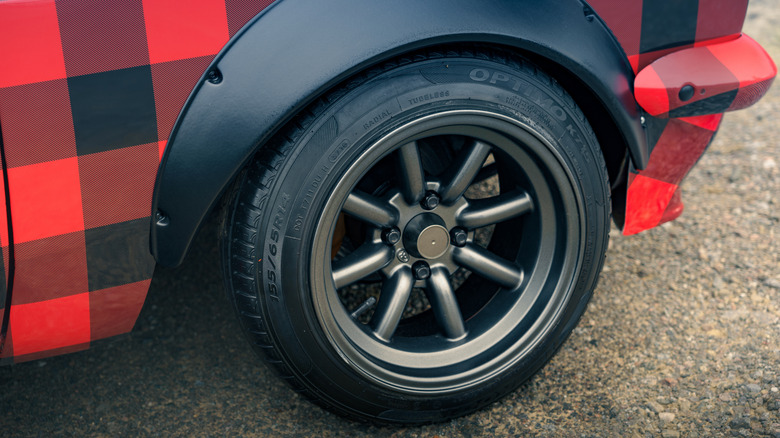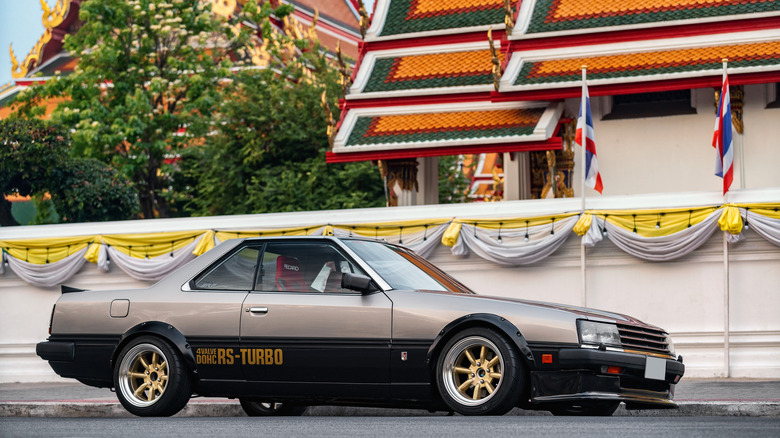Why It Takes Two Years To Receive Some Watanabe Wheels
Japan's craftsmanship is known all over the world for making some of the best knives, swords, and watches. It is clear that Japan has mastered the art of bending and molding steel to its will; the same can be said for wheels. For those who don't know, Japan is home to some of the world's finest wheel brands and alloy-making companies, such as Enkei, Rays, SSR, and more. However, one company is known for producing some of the most premium and high-quality wheels in the world; it's called Watanabe.
RS (Racing Service) Watanabe has been making wheels since 1965 and has gained a cult-like following worldwide. It is one of the few remaining wheel brands worldwide that still make their wheels by hand. Made in Yokohama City, in a small factory near a residential area, Watanabe still produces old-fashioned wheels using sand casting, a very time-consuming process, which is why some of its magnesium wheels have a wait period of up to two years. Each year, Watanabe only makes about 9,000 wheels, which is nothing compared to a mass-market brand like BBS, which produces over 1 million wheels annually.
In addition to the sand-cast wheels, Watanabe also makes metal-cast wheels, and for their newly introduced free-flow wheels, the estimated waiting period is around 4–6 months. Apart from wheels, Watanabe also manufactures steering wheels, high-quality lug nuts, shift knobs, and even surfboards. They are quite pricey at about $790 for a 17-inch Magnesium wheel. And that's just a single wheel.
What makes Watanabe wheels so special?
A set of clean-looking wheels can completely transform the aesthetics of a vehicle, and when it comes to iconic designs, it's hard to ignore Watanabe's name in the JDM scene. As one of the founding fathers of lightweight, stylish, and strong aftermarket wheels, it quickly gained traction within the JDM community and later spread across the world like wildfire. Their iconic eight-spoke wheel design, introduced in the late 60s and designed especially for the Nissan 240Z Fairlady, became extremely popular and has been replicated by many. Even today, the legendary eight-spoke design is considered one of the best in the market; that's 50 years of dominance.
They also partnered with OEMs to manufacture wheels for racing. In fact, Watanabe was one of the first companies to offer lightweight racing wheels to professional teams. Watanabe specializes in both aluminum alloy and magnesium. The lighter and stiffer magnesium alloy wheels are a big part of their mystique; however, they are difficult to work with, requiring extra attention and care, as magnesium is a corrosive and reactive metal.
But thanks to Japanese craftsmanship, incredible handmade precision, and attention to detail, these sand-casted wheels come out absolutely perfect with their natural sand-cast texture. Moreover, the handmade process not only takes a lot of time, but the room for human error is also higher, and any imperfections in something that rotates at 200 mph mean a lot of wastage. However, Watanabe doesn't throw away any discarded wheels or raw material; instead, it is melted and used again in another batch. Essentially, they are the Hermès of the wheel world, timeless, handmade, and synonymous with craftsmanship and exclusivity.

